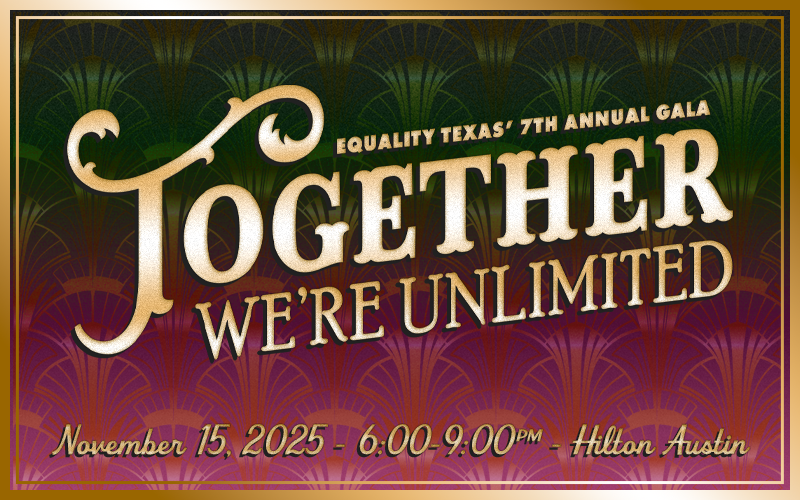SB 8
Endangering LGBTQIA+ youth by legitimizing familial rejection and limiting state protections
What's in the bill?
Texas Senate Bill 8 significantly restricts the ability of transgender, non-binary, and intersex individuals to access restrooms aligned with their gender identity in government controlled public spaces across Texas.
The bill mandates that people in schools, universities, government buildings, jails, and shelters must use restrooms that match their sex assigned at birth, not their gender identity.
Government Agencies that fail to comply will face severe financial penalties, up to $25,000 for first offenses and $125,000 for repeat violations, making enforcement aggressive.
While the bill restricts access to public facilities for trans people, it is cities/government agencies/etc. that will pay the fine.
What does it mean?
- While the bill is limited to government-owned facilities, past anti-trans legislation has caused a chilling effect broader than the letter of the law. Trans people may face increased discrimination while accessing public restrooms at coffee shops, bars, etc.
- Reported cases in other states show increased absenteeism from school and work among transgender and non-binary individuals, as well as withdrawal from public life.
- Further alienation from public life will escalate mental health stress and stigma among trans, intersex, and nonbinary Texans.
- The vague language allows for a variety of policies, without privacy protections. Thus, enforcement may vary widely from city to city, forcing trans folks to navigate a patchwork of policies even on a roadtrip from Houston to Dallas.
- Sustained exclusion may result in entrenched discrimination and reduced economic/work opportunities for LGBTQ+ Texans, mirroring trends seen in North Carolina and Arkansas after similar laws passed.
- The creation of “single-occupancy” alternatives may segregate and further isolate transgender/non-binary/intersex individuals without fully integrating them into public life and there is no assurance that such single-use facilities are available, accessible or planned for future development in various parts of the state.
- Youth may face compounded developmental and social effects due to increased disconnection from peers and lack of institutional support in educational settings.
What can we do now?
- Equality Texas is launching our Mobile Resource Roadshow post-session in 2025 and using it as an opportunity to underscore the exact terms of the legislation, making it clear what this legislation does and what it does not do.
- Equality Texas is sending letters to the Texas Municipal League, school districts and other political subdivisions, providing them with definitions that meet the letter of the law while balancing privacy and safety concerns for members of the transgender, non-binary, intersex and queer community.
- Equality Texas is working with friendly municipalities and political subdivisions to ensure a path forward on new construction that expands access to single-occupancy, gender-neutral bathrooms wherever possible, mirroring similar efforts by LGBTQIA+ advocates in states like Florida.
Frequently Asked Questions
What does Senate Bill 8 require?
Senate Bill 8 requires that people using multi-user restrooms, locker rooms, and changing facilities in government-controlled spaces, including public schools, universities, state/local government buildings, jails, and domestic violence shelters, must use facilities that align with the sex listed on their birth certificate, not their gender identity. The legislation makes specific references to an individual’s reproductive abilities.
Does SB 8 apply to private businesses?
No. SB 8 does not regulate restroom policies at privately owned businesses, churches, or non-governmental organizations. Private employers, retail stores, and restaurants may set their own rules for restroom use and are unaffected by this legislation.
Does this law make it a crime for individuals to use certain restrooms?
No. SB 8 does not impose criminal penalties or create a new criminal offense for individuals. Instead, it places enforcement responsibility on government agencies and institutions that operate the affected facilities. The law does not authorize the arrest or prosecution of people using restrooms.
What are the penalties for institutions not complying?
Government-controlled facilities that fail to comply with SB 8 may be fined $25,000 for a first violation, and $125,000 for each subsequent violation. The Texas Attorney General is empowered to bring enforcement actions, and private citizens may also file legal complaints.
Who can be reported or sued under SB 8?
Complaints can be filed against the agency or institution responsible, not against individual restroom users. The law allows the Attorney General or private citizens to bring suit if they believe that a facility is not enforcing the law.
Are there any exceptions?
Yes. The law provides exceptions for custodial staff, medical emergencies, law enforcement, and children under a certain age (often under 9 or 10) who are accompanied by an adult. It also allows single-occupancy or family restrooms to be offered as an alternative.
How does SB 8 impact transgender people?
SB 8 bars transgender people from using multi-user restrooms that match their gender identity in government-owned or government-controlled spaces. The law’s author admitted during debate that the intent of the bill is to impact transgender Texans.
What about jails, prisons, and shelters?
SB 8 requires prisoners to be housed according to biological sex and limits access to women’s domestic violence shelters to those assigned female at birth, with exceptions for children under 17 who are the children of women receiving services.
Will this law increase harassment or policing of restroom users?
Many advocates and opponents of the bill have raised concerns that it may lead to increased harassment or “gender policing,” as anyone who does not conform to another person’s ideas about gender could be confronted or reported, regardless of their identity.
